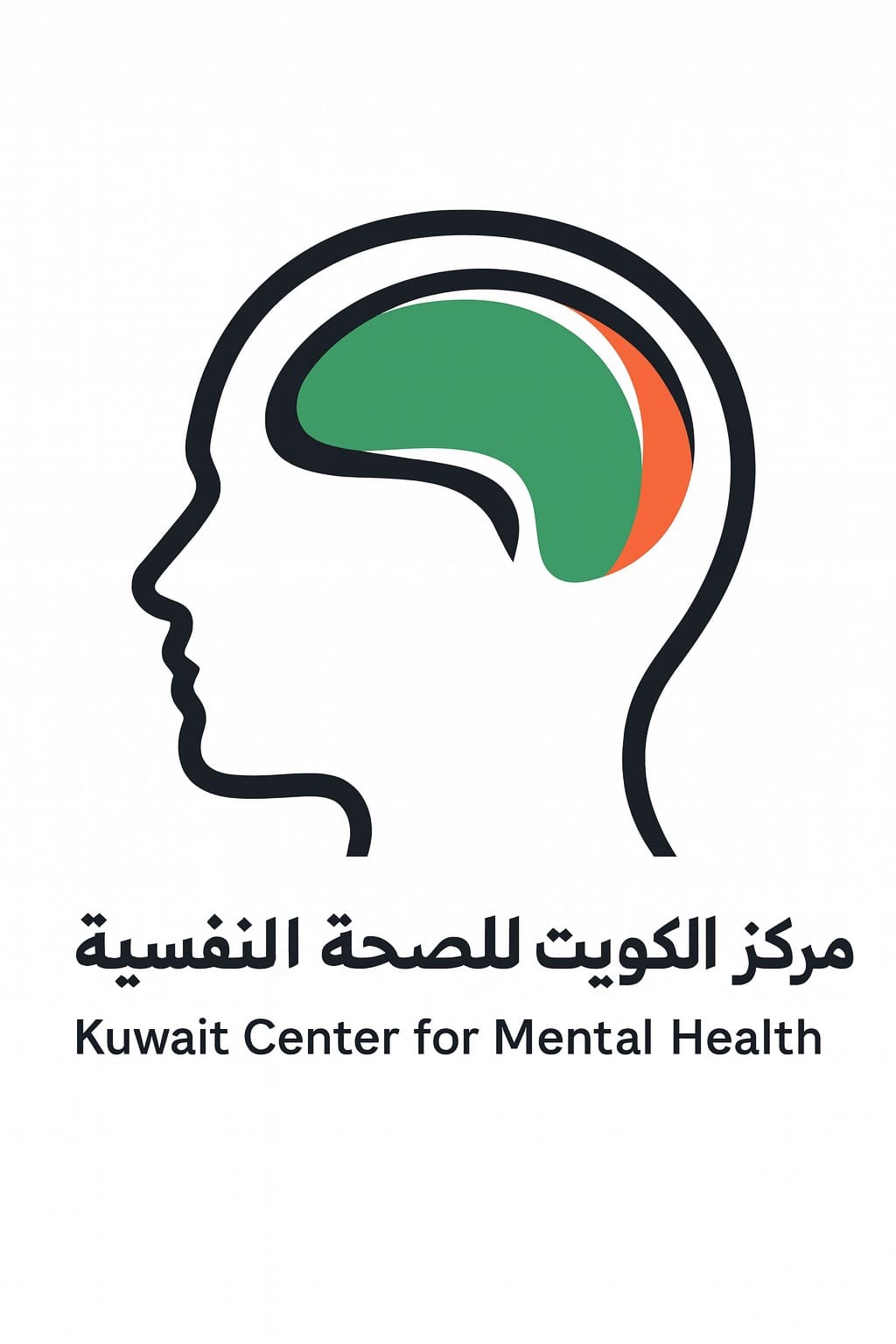
مركز الكويت للصحة النفسية


مركز الكويت للصحة النفسية
يعتبر مركز الكويت للصحة النفسية، المستشفى التخصصي الوحيد في دولة الكويت الذي يقدم خدمات الطب النفسي الشاملة، كما يقوم بالاشراف على خدمات الصحة النفسية المقدمة من قبل وزارة الصحة والجهات الاخرى
يتكون قسم الطب النفسي من 6 وحدات طب نفسي عامة موزعه وفقا لمحافظات دولة الكويت، بالإضافة الى وحدة الطواريء، وحدة الاطفال والمراهقين، وحدة كبار السن، وحدة الاستشارات الخارجية، وحدة الطب النفسي الشرعي، وحدة التأهيل و الرعاية المستمرة، و حدة الرعاية النهارية، و حدة أمراض النوم و تخطيط المخ، ووحدة الخدمة النفسية الإكلينيكية
يقدم قسم الطب النفسي خدماته الطبية من خلال: العيادات الخارجية، الأجنحة الداخلية والاستشارات الخارجية في مستشفيات وزارة الصحة الاخرى، بالاضافة الى اللجان الطبية
نظم القانون رقم 14 لسنة 2019 بشأن الصحة النفسية تقديم الرعاية الصحية لحالات الامراض النفسية في المنشآت الصحية، وقد نصت المادة (9) (10) على التالي
لكل شخص الحق في طلب فحصه لدى إحدى منشآت الصحة النفسية، وكذلك طلب عرضه على الطبيب النفسي لتقييم حالته وإصدار تقرير يثبت فيه الفحص والتقييم وحالته الصحية ومدى حاجته للعلاج. وله كذلك طلب دخول إحدى منشآت الصحة النفسية، ويتم قبول دخوله إذا رأى الطبيب النفسي الحاجة لذلك لوجود مرض نفسي دون الحاجة لموافقة أحد من ذويه إذا كان يبلغ من العمر 18 عاما، ويكون للمريض في هذه الحالة الخروج في أي وقت، ما لم تسر في شأنه شروط الدخول الإلزامي. وفي جميع الأحوال يجب إخطار عائلة المريض أو من يمثله بذلك إذا لم يبلغ الثامنة عشرة من عمره.
المادة (10)
لأي من الوالدين أو الوصي أو القيم حسب مقتضى الحال تقديم طلب لفحص المريض النفسي ناقص الأهلية بإحدى منشآت الصحة النفسية، كما يجوز لأي منهم أن يطلب خروجه إلا إذا انطبقت على المريض شروط الدخول الإلزامي، وفي هذه الحالة تتبع الإجراءات المقررة في هذا الشأن.
كما نظمت المادة (11) من القانون الية دخول المرضى للأجنحة في حال رفض المريض ذلك
أ- يجوز للطبيب المعالج أو من ينوب عنه بناء على تقييم نفسي مسبب أن يمنع المريض من مغادرة المنشأة خلال فترة التقييم في أي من الحالتين الآتيتين:
1- إذا رأى أن خروجه يشكل احتمالا جديا لحدوث أذى فوري أو وشيك على سلامته أو صحته أو على سلامة أو صحة الآخرين.
2- إذا رأى أنه غير قادر على رعاية نفسه بسبب نوع أو شدة المرض النفسي، أو أنه غير قادر بسبب مرضه النفسي على اتخاذ قرار بشأن الاستمرار في التقييم وتلقي العلاج الإرادي الطوعي.

Mission:
- To deliver optimum and safe mental health care to people of all ages and their families through an integration Between clinical excellence Education, Research, and Modern Technology.
Vision:
– To be one of the outstanding psychiatric centers in the Middle East, through being a center of excellence in providing various efficient, automated mental health services as well as education and research.
We at Kuwait Center for Mental Health strive to provide accessible and up-to-date mental health care on a national level.
Values:
- Quality Patient Care
- Respect and compassion
- safety and confidentiality
- Team Work
4- Goals and objectives
– Patient-Centered Care principles are essential concepts in the delivery of high-quality health service. For this to be achieved the department will strive to provide evidence-based psychiatry delivered in respectful, accessible, and safe healthcare facilities for all residents in Kuwait.
- Recognizing Postgraduate Medical Education as a crucial factor in enhancing healthcare services across medical specialties, the department is committed to collaborating with the Kuwait Institute for Medical Specialties and the Kuwait Board of Psychiatry to establish and maintain the necessary framework for the program’s success.
- Decentralization: As the primary provider of mental health care services in Kuwait, our hospital faces growing demands alongside limited specialized personnel and financial resources. To ensure the continuity of psychiatric care, the department focuses on training medical staff to deliver basic mental health services in primary care and general hospital settings. This approach allows the hospital to concentrate its efforts on providing specialized tertiary mental health services.
- Advocacy: Committed to raising awareness, promoting mental well-being, and reducing barriers to accessing mental health services, the department actively works to enhance mental health education and support within the community.
Introduction:
Code of ethics institutes the set of values that governs the relationship between care provider and patient.
Trust between patient and care provider is essential to develop a warm and healthy relationship.
Code of ethics should always be central to the relationship between patient and their healthcare provider.
To build such relationship, it is important to guide governing bodies, hospital administrators, professional, non-professional staff members and others who constitute the “hospital family”.
Ethical and administrative principles are established in KCMH.
These principles are important to the proper and acceptable operation of the hospital.
الرؤية(VISION):
أن يصبح مركز الكويت للصحة النفسية واحدا من أفضل المستشفيات في الشرق الاوسط من خلال التميز في تقديم مختلف الخدمات للصحة النفسية وكذلك في التعليم والبحوث العلمية
To be one of the outstanding psychiatric centers in the Middle East through being a center of excellence in providing various efficient, automated mental health services as well as education & research
الرسالة(MISSION)
يعنى مركز الكويت للصحة النفسية بتقديم الأفضل والأكثر أمانا للصحة النفسية للناس من جميع الأعمار والفئات وعائلاتهم من خلال التكامل بين الأبحاث التعليمية والتكنولوجيا الحديثة
To deliver optimum and safe mental health care to people of all ages and their families through an integration between clinical excellence education, research & modern technology.
حقــوق المريض النفسي
يتمتع المريض النفسي الذي يُعــالج بمركز الكويت للصحة النفسية بالحقوق الآتيـــــة :-
1- لكل شخص الحق في طلب فحصه وعرضه على الطبيب النفسي لتقييم حالته وتلقي العناية الواجبة في بيئة آمنة ونظيفة، والحصول على العلاج بحسب المعايير النوعية المتوافرة المتعارف عليها طبيًّا، وإعطاؤه الفرصة في المشاركة الفعلية والمستمرة في الخطة العلاجية، إذا كان قادراً على ذلك. وله كذلك طلب الدخول الى أجنحة المركز ويتم قبول دخوله إذا رأى الطبيب النفسي الحاجة لذلك لوجود مرض نفسي دون الحاجة لموافقة أحد من ذويه إذا كان يبلغ من العمر 18 عاما، ويكون للمريض الحق في الخروج متى ما أنهى فترة علاجه دون مصاحبة أحد، لم تسر عليه شروط الدخول الإلزامي أو أن يكون قاصرا أو أن المحكمة قد عينت عليه وصيا أو أن يكون مطلوبا لجهة أمنية أو قضائية، وفي جميع الأحوال يجب إخطار عائلة المريض أو من يمثله بذلك إذا لم يبلغ من الثامنة عشرة من عمره.
Every individual has the right to receive a psychiatric assessment and appropriate medical care in a safe and clean environment. They are entitled to treatment in accordance with established medical guidelines and standards and should have the opportunity to actively and continuously participate in their treatment plan, provided they are capable of doing so. Patients may request admission to hospital wards if deemed necessary by a psychiatrist due to a mental illness. If the patient is 18 years or older, consent from relatives is not required for admission. Upon completing the treatment plan, the patient has the right to leave the hospital without requiring an escort, unless they are under involuntary admission, are a minor under a guardian’s custody, or are wanted by a law or judicial authority. In all the above scenarios, the treating physician must notify the patient’s family or guardian if the patient is under 18 years of age.
2- إحترام حقوقه الفردية في محيط صحي وإنساني يصون كرامته، ويفي باحتياجاته الطبية، ولا يجوز إدخاله أو بقائه الزاميا في المركز إلا وفق أحكام القانون رقم 14 لسنة 2019 في شأن الصحة النفسية.
Respect of the patient individual rights in a healthy and humane environment that preserves his dignity, meets his medical needs, and may not be admitted or mandatory to remain in the center except following the provisions of Law No. 14 of 2019 on mental health
3- يجب الحصول على موافقة المريض المستنيرة على العلاج في حال تمتعه بالقدرة العقلية على فهم وإدراك الإجراءات والمعلومات المقدمه إليه واتخاذ قرار مبني على هذا لادراك والتعبير عنه تعبيرا صحيحا، وإعلامه بالتشخيص وسير الخطة العلاجية قبل البدء في العلاج، وإعلامه بمدى استجابته المتوقعة لها، والفوائد المرجوة منها، والأخطار والأعراض الجانبية المحتملة، والبدائل العلاجية الممكنة، وأي تغيير يطرأ عليها قبل موافقته على العلاج، وعند الحاجة إلى نقله داخل المنشأة أو خارجها فإن له الحق – أو وصيه أو من يمثله قانونيا إذا كان غير قادر على اتخاذ القرار – في معرفة ذلك وأسبابه.
The patient’s informed consent for treatment must be obtained if they possess the mental capacity to understand the procedures and information provided, make an informed decision, and communicate it clearly. The patient should be informed about their diagnosis, the treatment plan, its expected outcomes, potential benefits, associated risks, possible side effects, and available alternatives. Additionally, any changes to the treatment plan must be communicated before proceeding. When transferring the patient within or outside the facility, the patient—or their guardian or legal representative, if the patient is unable to make decisions—has the right to be informed about the transfer and its reasons.
4 – ألاّ يعطى أي نوع من أنواع العلاج دون إذنه، فإن كان غير قادر على إتخاذ قرارات العلاج يتم إبلاغ لجنة المتابعة والتقييم، ويلتزم الطبيب المعالج بإعطائه العلاج اللازم حتى تبت اللجنة بذلك.
No treatment should be administered without the patient’s consent. If the patient is unable to make treatment decisions, the matter must be referred to the Review and Capacity Board. In the meantime, the treating doctor is obligated to provide the necessary treatment until the committee reaches a decision.
5 – ألاّ يعطى علاجاً تجريبيًّا ولو كان مرخصاً أو يُدخل في بحث طبي أو تجريبي؛ إلا بعد علم واضح وإذن خطي منه إذا كان قادراً ومؤهلاً لذلك، أو بإذن خطي من أحد الوالدين أو الوصي إن لم يكن قادراً على ذلك.
The patient must not be subjected to experimental treatment, even if licensed or participate in medical or experimental research without their explicit knowledge and written consent, provided they are capable and eligible to give such consent. If the patient is unable to do so, written permission must be obtained from a parent or legal guardian.
6- إعلامه إن كان قادراً أو إعلام أو ذويه بالخدمات العلاجية المتوافرة في المنشأة العلاجية النفسية وكيفية الحصول عليها، ومتى يمكن أن تمنع عنه، ومصدر تغطية التكاليف. The patient, or their family if applicable, must be informed about the treatment services available at the psychiatric facility, the process for accessing them, circumstances under which services may be withheld, and the source of cost coverage.
7- حمايته من المعاملة المهينة، أو الاستغلال المالي، أو الجسدي، أو الجنسي، أو غيرها، وألّا يستخدم معه العقاب البدني أو المعنوي أو التهديد بهما مهما كان السبب.
Protecting the patient from degrading treatment, financial, physical, or sexual exploitation, or any other forms of abuse. Under no circumstances should physical or psychological punishment, or the threat thereof, be used against them for any reason.
8- المحافظة على حريته، وعدم تقييدها بعزله إلا عند الحاجة التي يقررها الطبيب المعالج ولمدة محددة، وبأقل الوسائل المقيدة لحريته، ويكون ذلك في ظروف إنسانية توضحها اللائحة.
Preserving the patient’s freedom and not restricting it through isolation except when deemed necessary by the treating physician, for a limited period, and using the least restrictive means. This should be carried out under humane conditions as outlined in the regulations.
9- إتاحة الحرية له في الحركة داخل المركز، وخارجها إذا كانت متوافقة مع المتطلبات العلاجية ومتطلبات السلامة.
– Allowing the patient the freedom to move within the facility and outside it, provided it aligns with treatment requirements and safety considerations.
10- احتفاظه – إذا كان قادراً على ذلك أو ذويه إذا لم يكن قادراً – بما في حوزته من ممتلكات شخصية، وتصرفه فيها، وتمكينه من استعمال وسائل الاتصال وفق المتطلبات العلاجية، وبما لا يتعارض مع متطلبات السلامة.
Allowing the patient—if capable—or their family, if they are not, to retain their personal belongings, manage them, and use communication devices in accordance with treatment requirements and without compromising safety considerations.
11- تمكينه من إستقبال الزوار ضمن نظام الزيارة المعلن عنه في المركز، ويمكن أن تُمنع الزيارة أو يحد منها وفقاً للمتطلبات العلاجية، مع ضمان السبل الكفيلة بتواصل ذويه به، وإطلاعهم على حالته وعلى خطته العلاجية وتمكينهم من الاطمئنان عليه في جميع الأحوال، وذلك بحسب ما تحدده اللائحة.
Allowing the patient to receive visitors in accordance with the visitation policy announced by the facility. Visits may be restricted or prohibited based on treatment requirements. Measures must be ensured to allow the patient’s family to communicate with them, be informed of their condition and treatment plan, and check on their well-being in all circumstances, as outlined in the regulations.
12 – المحافظة على سرية المعلومات الخاصة به، وعدم البوح بها أو إفشائها إلا في الحالات الي نص عليها المادة (13) من القانون رقم 70 لسنة 2020 بشأن مزاولة مهنة الطب والمهن المساعدة وحقوق المرضى والمنشآت الصحية.
Maintaining the confidentiality of the patient’s information, and not disclosing or revealing it except in the cases stipulated in Article (13) of Law No. 70 of 2020 regarding the practice of the medical profession and the auxiliary professions, the rights of patients and health facilities
13 – تمكينه أو ذويه من رفع أي شكوى ضد أي شخص أو جهة في المنشأة العلاجية النفسية إذا كان هناك سبب لذلك، دون أن يؤثر ذلك على مستوى الرعاية المقدمة إليه.
Allowing the patient or the relatives to raise any complaint against any person or entity in the psychiatric treatment facility if there is a reason for this, without affecting the level of care provided to him
14 – إخباره أو ذويه عن دخوله الإلزامي في المركز عند إصدار قرار الدخول الإلزامي، أو تجديده، وإخباره بالطرق التي يجب اتباعها إذا رغب في إلغاء قرار الدخول الإلزامي، وفقا لأحكام القانون رقم 14 لسنة 2019 في شأن الصحة النفسية.
Informing the patient or his family about the mandatory admission status in the hospital when the mandatory admission decision is issued, or when renewing it, and informing the patient of the available procedure to be followed if the patient wishes to contest the mandatory admission decision, following the provisions of Law No. 14 of 2019 regarding mental health
15 – ( أ ) – إخباره أو ذويه عن وضعه النظامي في المنشأة عند إصدار قرار الدخول أو تجديده بلغة مفهومة وإبلاغهم بجميع حقوقه بما في ذلك سبب الدخول والطرق التي يجب اتباعها إذا رغب الخروج.
Informing the patient or the family about the legal status in the hospital when issuing the admission decision or renew it in an understandable language and inform them of all his rights, including the reason for admission and the methods to be followed if the patients wishes to leave.
( ب ) – يجب على المنشأة العلاجية النفسية تعريف المريض النفسي المتلقي للعلاج داخل المنشأة العلاجية النفسية أو خارجها – أو ذويه – بتلك الحقوق، وتلتزم المنشأة بوضع نسخة من تلك الحقوق في أماكن ظاهرة داخل المنشأة العلاجية النفسية ليطلع عليها المرضى والزائرون.
The psychiatric treatment facility must inform the psychiatric patient receiving treatment inside or outside the psychiatric treatment facility – or the family – of these rights, and the facility is obligated to place a copy of these rights in visible places inside the psychiatric treatment facility for patients and visitors to see.
*مقتبس من القرار الوزاري الكويتي رقم (14) لسنة ٢٠١٧ بشأن لائحة حقوق المرضى و قانون الصحة النفسية الكويتي 2019
Adapted from Kuwaiti Ministerial Resolution No. (14) of 2017 regarding the Patients’ Rights Regulations and the Kuwaiti Mental Health Law 2019
